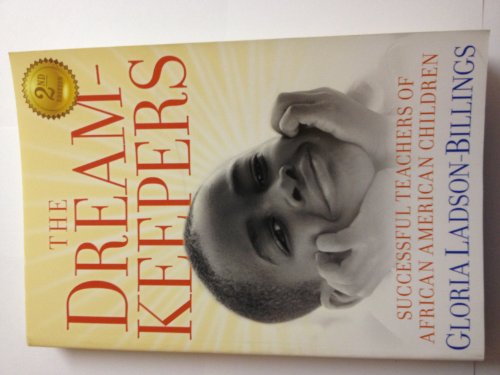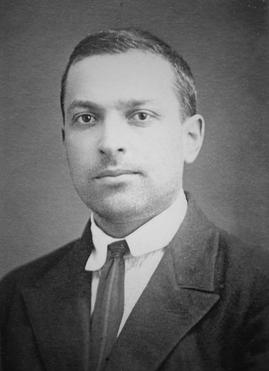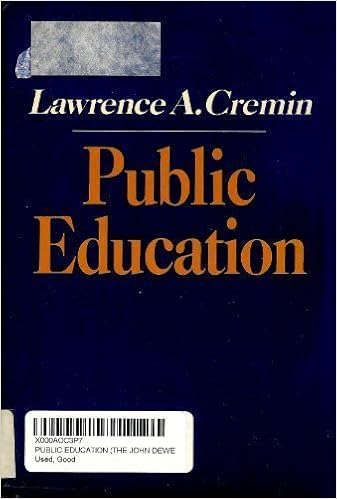We are now five years into Vermont’s experiment in proficiency based learning (PBL), and I think it’s an important time to pause and take stock of it. When thinking about PBL, I sometimes feel like the proverbial blind man confronting the elephant. PBL is such a large, amorphous concept, practiced in so many radically different ways across Vermont, that it’s hard to imagine anyone being able to comment on it with anything approaching a comprehensive understanding.
So I’m just one high school teacher — a teacher of just two grades, juniors and seniors, at that — commenting on PBL. Still, I’ve read few articles or even meaningful social media posts by other classroom teachers reflecting on PBL. I offer these reflections in the spirit of adding to the conversation among teachers. I think it’s an especially important time to do so.
So here are some basic reactions I have to PBL.
First, it’s amazing PBL has lasted this long. The politics of this reform have been fascinating. PBL has represented an interesting alliance between conservative reformers (much of the advocacy for PBL and Flexible Pathways-style learning comes from the relatively conservative notion of college and especially career readiness — the genesis of the movement in New Hampshire, which actually adopted it first, came in part from a kind of alliance with the business community) and progressive reformers (the use of grades as holistic measurements rather than competition, the de-emphasis on standardized testing inherent in the movement). And all of this has been run through the Vermont tradition of local control, sending it spiraling off in a hundred different directions.
I am surprised — as I think a lot of educators are surprised — that Vermont has not scrapped PBL yet — or at least made a very clear public declaration that PBL is an entirely optional means of assessment, as Maine did. What surprised me most was that there was never a moment when it seemed as though the Vermont public had conclusively had enough. Yes, there were examples of districts where it went over poorly, but that discontent never seemed to reach a state-wide tipping point.
Why does this surprise me?
First, PBL runs counter to a variety of cultural expectations that Americans hold for their schools. Surely by now the cultural expectation of raising an “A student,” for example — thwarted by many current incarnations of PBL, which use 1-4 grading systems — would have spurred greater backlash.
The deeper issue at play is that PBL is designed to encourage growth and understanding rather than competition, yet many Americans continue to look to schools as meritocratic sorting mechanisms, pitting students against each other in a kind of inherent competition for the finite resources of college placements, scholarship money, and, in a broader sense, economic and political influence. PBL doesn’t do that, at least not in its purer forms.
Another reason I’m surprised it has lasted this long is the sheer indecipherability of the report card: just a maze of standards and substandards trailing on for pages. Reading a student’s grades under PBL sometimes feels like trying to read the fine print on your Verizon bill.
So why the lack of open rebellion?
First, some of the wealthier school districts (where meritocratic concerns might have been most vocal) made smart compromises in their scoring and reporting in order to make PBL look more like the traditional system. (A great example is the savvy triangulation made by Vermont’s largest high school.) Second, teachers and administrators have made Herculean efforts — both to translate the new grades into plain English, and — frankly — to sell the positive aspects of PBL. Perhaps the PBL era even fostered, through its inherent complexity and newness, a new level of communication between teachers and families, which hadn’t existed during the era of online gradebook transparency, during which it was taken as a given that parents didn’t need an in-depth email explaining that Johnny was failing (because it was right there in the parent portal).
Third — and I think this is what a lot teachers of seniors would tell you — the global pandemic blunted the effect of the first senior class graduating under PBL last spring; any thorny questions about students not graduating as the result of any newfangled PBL standards were waved away by the exigencies of life-under-COVID.
Fourth, it’s simple politics: Vermont has a more progressive bent than most other states, including Maine, and I think the population here is simply more tolerant of progressive educational experimentation, especially coming in the wake of the conservative No Child Left Behind-era, which burned us all out on standardized testing and high-stakes accountability — policies that have never gone over well in our liberal state. PBL couldn’t be further from those policies, and its liberal, holistic feel probably worked even more in its favor during the Trump era, particularly alongside other liberal ed reforms sweeping Vermont: Restorative Practice, Flexible Pathways, and the various incarnations of education-for-social-justice.
No matter what, the political backlash that never came was striking. In the meantime, what really stood out to me as an on-the-ground educator during the PBL revolution in Vermont was the extent to which:
1) It didn’t really seem like anyone knew what PBL was supposed to look like. There was no mention of its connection to similar prior experiments, such Mastery Based Learning, or Outcome-Based Education, which was interesting. And it was never clear which if any other states had actually attempted to implement such a system. There were always these mythical schools that had done it — Chugach School District in Alaska, Casco Bay in Maine — and I found myself often wishing I could take a pilgrimage to one of these places, just to observe what this magical system looked like.
2) The question of whether this system had ever been shown to work was never particularly discussed, at least not to the rank and file like me. Again, it was interesting that no one ever wanted to make the connection to previous efforts with Mastery Learning or Outcome-Based Education, which was especially strange where I work given that we several older teachers who’d been using Mastery Learning successfully for years. There were even teachers who remembered Competency-Based Learning in the form of minimum competency subject tests in the late 1970s. Nobody pushing the new reforms wanted to discuss these prior efforts, their connection to the current reforms, or the extent of their effectiveness. It was as though, because the old stuff had long ago fallen out of favor, their association would compromise the beautiful new movement. Or maybe — as I began to suspect — the purveyors of PBL circa 2015 didn’t really know much about OBE or Mastery Learning.
3) It was the best of — and the worst of — Vermont’s local control. PBL was an amazingly decentered reform. It just never seemed like anyone knew what we were supposed to be doing and no one was coordinating our efforts. This was a problem, of course, given that we’ve seen districts take such wildly different approaches. In practice this looked like every district figuring it out themselves and constant rumors floating through the staff room regarding other schools’ better, smarter approaches (five years ago I just got sick of hearing the phrase, “At CVU what they do is . . .”). The notion that we’re all wasting a lot of effort and missing good ideas simply because we’re not collaborating across districts has haunted us through this whole process.
On the other hand, I’ve appreciated the fact that we’ve had to think this all through for ourselves, that the state didn’t just come in and tell us what to do. I actually think that this led to two benefits. First, there was surely a lot of wasted effort on the part of lone actors repeating the mistakes of other districts, but there was also surely a great deal of innovation achieved in the process as these lone districts were also free to pursue local solutions in their own way.
Second, I also think that the fact that we all had to think everything through for ourselves actually led all of us to reconsider many of our fundamental assumptions about teaching and learning (for example — what should constitute graduation-level work?). This process has been tremendously healthy for educators and it wouldn’t have been the same had we been given a list by the state instead of organically arriving at our own answers.
I’ll be surprised if PBL survives in the long run. A few months ago, I got an email from the Great Schools Partnership, a non-profit organization in Maine that for many years seemed to be the driving force behind implementing PBL in New England. The email I received was advertising trendy new materials and workshops based almost entirely on social justice and racial equity. What a mark of the times — PBL is no longer the cutting edge trend; even the Great Schools Partnership, the bulwark of PBL, has moved on. From what I can tell, most of the early adopter-types, the cutting edge progressive educators who carried PBL have also moved on to issues of social justice and equity. The proposals of the Rowland Fellowships here in Vermont are always a great barometer of what’s hot. In 2017, many of the fellows were pursuing matters of PBL; by 2018, none were. By now PBL is, in some sense, part of the landscape. If we never had the widespread backlash against it that many of us thought we would, I don’t get the sense that it’s something most educators feel passionately in favor of. And ask students their opinion — something I do myself from time to time — and most of them will tell you that they’d rather return to the traditional system. I am not saying this is the right thing to do, only reporting what I mostly hear. I see the structural requirements of PBL quietly slipping away, just like Mastery Learning and Outcome Based Education did, the earth gradually reclaiming it until 1-4 scoring recedes back toward the 0-100 or traditional alpha grading scale.
But the theories and the practices of PBL — some positive and some negative — will have informed an entire generation of educators and students. And that’s an important legacy that will continue to be felt for a long, long time in Vermont education.
Or who knows? Perhaps PBL will last? I hope I have made it clear here that we in education have certainly seen far, far worse in just the last twenty years.
My only hope is that the next time — thirty years from now, perhaps — that the ideas of PBL swing back into favor, we’ll take some time to learn a thing or two from the history of these similar reforms. We are wise to base on new “innovations” on what we learn from the past — both strengths and weaknesses — rather than charging ahead in a glow of excitement and passion. After all, as PBL teaches us, the best learning is always iterative.
***
In the next post, I’ll go into some of the specific pros and cons of PBL as a system, with an eye toward delving a little deeper in order to understand what’s positive and what’s negative about the system itself.




